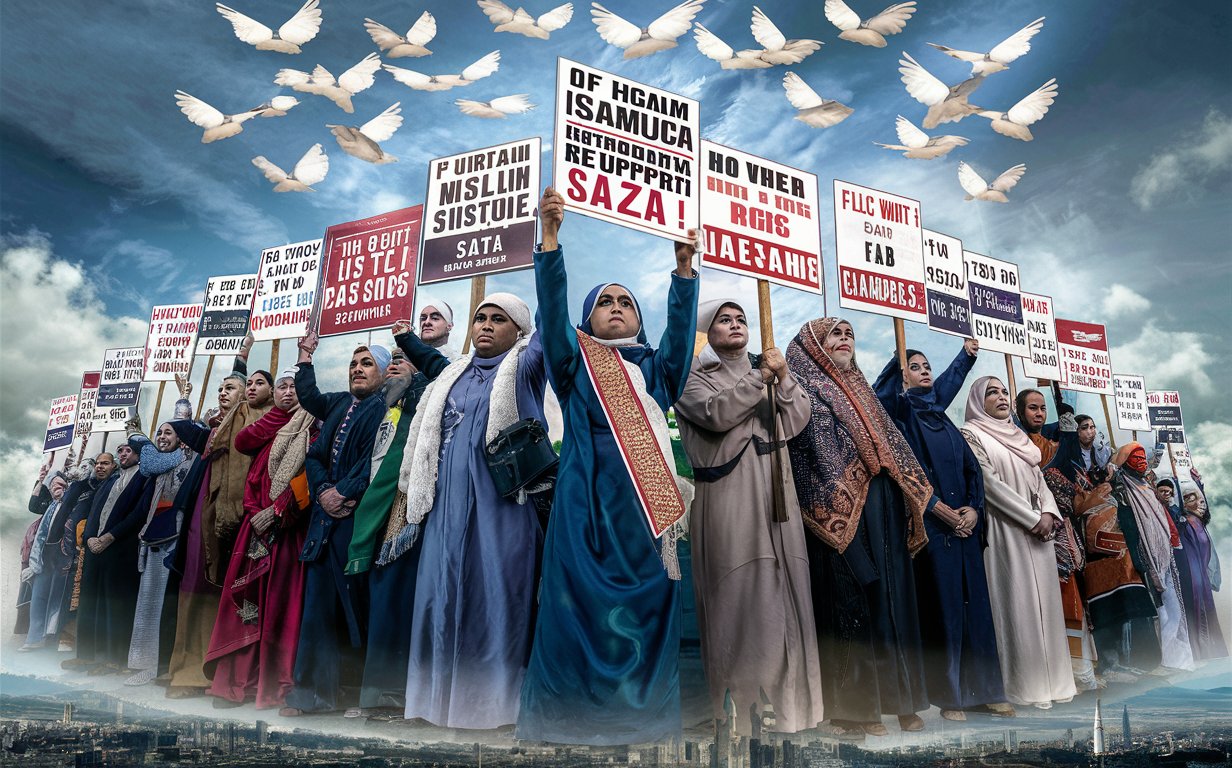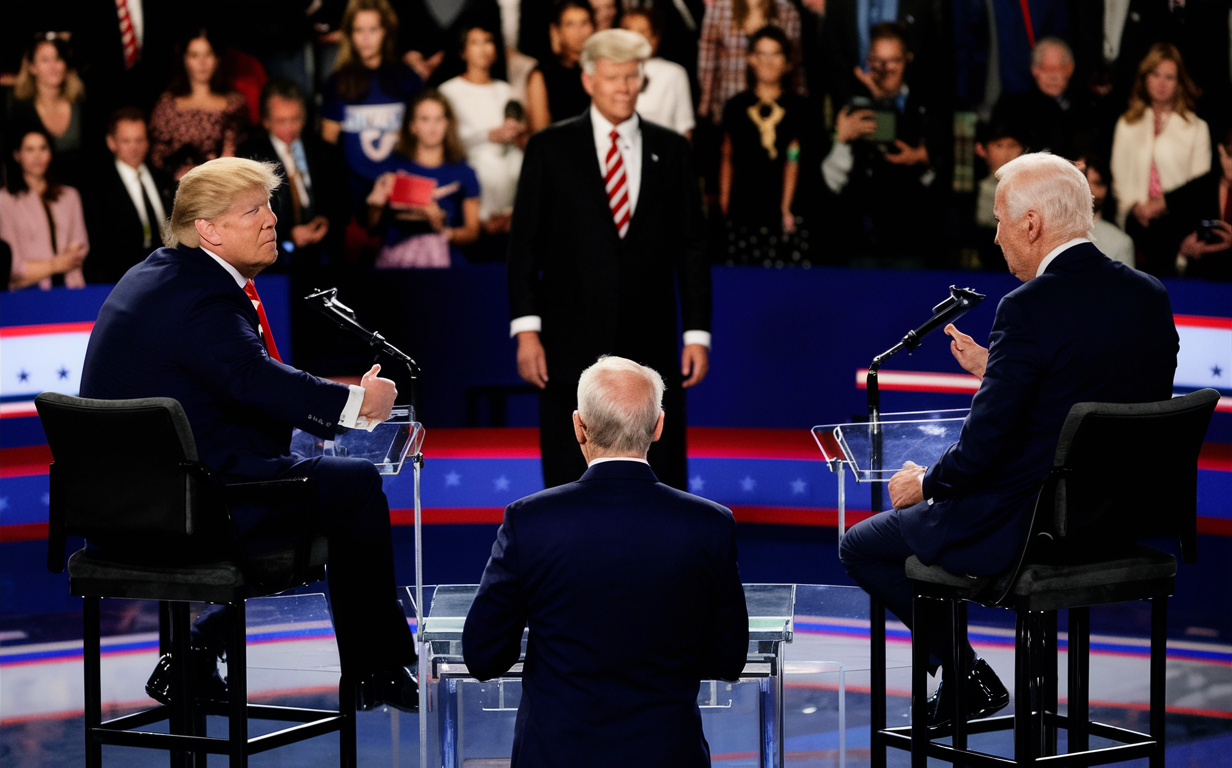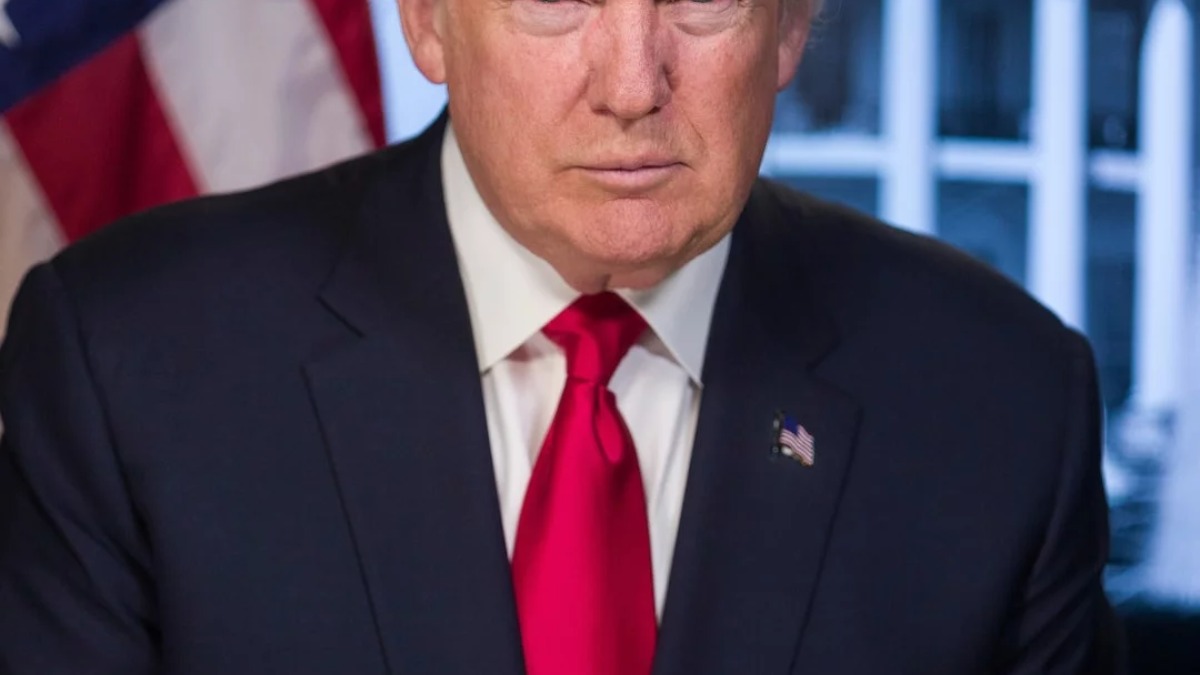Politics
The Repercussions of Growing Polarization in Pakistan

Table of Contents
Introduction
Pakistan is a country with a long history of political polarization. This polarization has been exacerbated in recent years by a number of factors, including the rise of social media, the decline of traditional media, and the increasing popularity of identity politics.
This polarization has had a number of negative repercussions for Pakistan, both domestically and internationally. These repercussions include:
- A decline in trust in government. As the political divide has widened, so too has the level of trust in government. This has made it more difficult for the government to govern effectively and has led to a decline in public services.
- Increased social unrest. The growing polarization has also led to increased social unrest. This has manifested itself in the form of protests, riots, and violence.
- A weakened economy. The polarization has also had a negative impact on the economy. This is because it has made it more difficult for businesses to operate and has discouraged investment.
- A damaged reputation abroad. The polarization has also damaged Pakistan’s reputation abroad. This has made it more difficult for Pakistan to attract foreign aid and investment.
The Causes of Polarization
There are a number of factors that have contributed to the growing polarization in Pakistan. These factors include:
- The rise of social media. Social media has made it easier for people to connect with others who share their political views. This has created echo chambers where people are only exposed to information that confirms their existing beliefs.
- The decline of traditional media. Traditional media, such as newspapers and television, have traditionally played an important role in bridging the political divide. However, the decline of these media outlets has left a void that has been filled by social media and other partisan outlets.
- The increasing popularity of identity politics. Identity politics has become increasingly popular in Pakistan in recent years. This has led to a situation where people are more likely to vote for a candidate based on their identity, rather than their policies.
The Repercussions of Polarization
The repercussions of polarization are far-reaching and have a negative impact on both the domestic and international spheres. Some of the most significant repercussions include:
- A decline in trust in government. As the political divide has widened, so too has the level of trust in government. This has made it more difficult for the government to govern effectively and has led to a decline in public services.
- Increased social unrest. The growing polarization has also led to increased social unrest. This has manifested itself in the form of protests, riots, and violence.
- A weakened economy. The polarization has also had a negative impact on the economy. This is because it has made it more difficult for businesses to operate and has discouraged investment.
- A damaged reputation abroad. The polarization has also damaged Pakistan’s reputation abroad. This has made it more difficult for Pakistan to attract foreign aid and investment.
Ways to Address Polarization
There are a number of ways to address polarization in Pakistan. Some of the most effective ways include:
- Promoting media literacy. Media literacy is the ability to critically evaluate the information that we consume. This is important because it can help us to identify and avoid biased or misleading information.
- Supporting independent media. Independent media can play an important role in bridging the political divide. This is because they are less likely to be biased and can provide a platform for different viewpoints.
- Encouraging dialogue and debate. Dialogue and debate are essential for a healthy democracy. These activities can help to break down the barriers between different groups and can promote understanding and tolerance.
Conclusion
The growing polarization in Pakistan is a serious problem that has a number of negative repercussions. However, there are a number of ways to address this problem. By promoting media literacy, supporting independent media, and encouraging dialogue and debate, we can help to create a more tolerant and inclusive society in Pakistan.
Leadership
Leadership Solutions for Muslim Ummah: Raising a Strong Voice Against Islamophobia and Gaza

The current state of the Muslim ummah is concerning and demands urgent attention. A leadership crisis has resulted in a dearth of bold and empathetic leaders who can effectively tackle issues such as Islamophobia and the ongoing crisis in Gaza. The lack of such leadership has contributed to the marginalization of Muslims in several regions of the world, including the West. It is imperative that we identify and support leaders who can represent the ummah with integrity and courage, and work towards creating a more just and inclusive world for Muslims.

One of the key challenges facing the Muslim ummah is the rise of Islamophobia. Muslims are often portrayed negatively in the media, and this has led to a rise in hate crimes against them. To combat this, the Muslim ummah needs leaders who are willing to speak out against Islamophobia and work towards creating a more tolerant and inclusive society.
Another challenge facing the Muslim ummah is the ongoing crisis in Gaza. The people of Gaza are facing immense hardship, and the international community has largely failed to address their plight. The Muslim ummah needs leaders who are willing to raise their voices and demand action to end the suffering of the people of Gaza. It is only through strong and brave leadership that the Muslim ummah can hope to overcome these challenges and fulfil its potential as a global community.
Table of Contents
Understanding the Leadership Crisis in Muslim Ummah

The Muslim Ummah is facing a leadership crisis, with a lack of strong and brave leaders who can raise their voices against Islamophobia and the ongoing conflict in Gaza. This crisis has been brewing for some time, with many Muslims feeling that their leaders are not doing enough to protect their interests and stand up for their rights.
One of the major reasons for this crisis is a lack of unity among the Muslim Ummah. There are many different sects and factions within the Muslim community, each with their own leaders and agendas. This has led to infighting and division, making it difficult to present a united front against common challenges.
Another factor contributing to the leadership crisis is a lack of education and training for Muslim leaders. Many Muslim leaders are not properly trained in leadership skills or Islamic teachings, making it difficult for them to effectively lead their communities. This has led to a situation where many Muslim communities are left without strong and effective leaders who can guide them through difficult times.
To address this crisis, it is important to focus on developing strong and effective leaders who can unite the Muslim Ummah and stand up for their rights. This can be achieved through education and training programs that focus on leadership skills and Islamic teachings. It is also important to encourage greater unity and collaboration among Muslim leaders, so that they can work together to address common challenges and present a united front against Islamophobia and other forms of discrimination.
Overall, the leadership crisis in the Muslim Ummah is a complex and multifaceted issue that requires a comprehensive and coordinated response. By developing strong and effective leaders who can unite the Muslim community and stand up for their rights, we can begin to address this crisis and build a brighter future for the Muslim Ummah.
Strategies for Cultivating Brave Leadership

To fulfil the leadership crisis in Muslim Umah, it is essential to cultivate brave leadership that can raise a strong voice against Islamophobia and the Gaza situation. Here are some strategies that can help in cultivating brave leadership:
1. Encourage Critical Thinking
One of the most important strategies for cultivating brave leadership is to encourage critical thinking. Leaders who can think critically are more likely to take calculated risks and make informed decisions. Encouraging critical thinking can be done by providing opportunities for leaders to engage in debates, discussions, and problem-solving activities.
2. Develop Communication Skills
Communication is a key aspect of leadership. Leaders who can communicate effectively are more likely to inspire others and gain support for their cause. Developing communication skills can be done by providing training in public speaking, writing, and interpersonal communication.
3. Foster Resilience
Resilience is the ability to bounce back from setbacks and challenges. Leaders who are resilient are more likely to stay focused and committed to their goals even in the face of adversity. Fostering resilience can be done by providing opportunities for leaders to face challenges and learn from their failures.
4. Promote Diversity and Inclusion
Leaders who promote diversity and inclusion are more likely to gain support from a wider range of people. Promoting diversity and inclusion can be done by creating opportunities for leaders from different backgrounds to work together and learn from each other.
By implementing these strategies, it is possible to cultivate brave leadership that can raise a strong voice against Islamophobia and the Gaza situation.
Combating Islamophobia Through Influential Advocacy

In order to fulfill the leadership crisis in the Muslim Umah, it is important to combat Islamophobia through influential advocacy. This involves raising awareness about the negative effects of Islamophobia and advocating for change at the local and national levels.
One effective way to combat Islamophobia is by promoting interfaith dialogue and cooperation. This can help to break down barriers and promote understanding between different communities. It is also important to engage with the media and challenge negative stereotypes and misrepresentations of Islam and Muslims.
Another important aspect of influential advocacy is to empower Muslim leaders and provide them with the tools and resources they need to be effective advocates. This includes training on public speaking and media engagement, as well as access to networks and platforms that can amplify their voices.
Overall, combating Islamophobia through influential advocacy requires a multifaceted approach that involves engaging with a range of stakeholders, including government officials, media outlets, and civil society organizations. By working together, it is possible to create a more inclusive and tolerant society that respects the rights and dignity of all people, regardless of their faith or background.
Supporting Gaza: A Blueprint for Muslim Leaders

The situation in Gaza is a pressing concern for Muslim leaders worldwide. They need to take a proactive approach to support the people of Gaza and raise a strong voice against Islamophobia. Here are some actionable steps that Muslim leaders can take to support Gaza:
1. Provide Humanitarian Aid
Humanitarian aid is crucial for the survival of the people of Gaza. Muslim leaders can work with international aid organizations to provide food, medicine, and other essential supplies to the people of Gaza. They can also provide financial assistance to rebuild the infrastructure that has been destroyed by the ongoing conflict.
2. Advocate for Peaceful Resolution
Muslim leaders can use their influence to advocate for a peaceful resolution to the conflict in Gaza. They can work with international organizations and other world leaders to promote dialogue and negotiations between the parties involved in the conflict.
3. Raise Awareness
Muslim leaders can use their platform to raise awareness about the situation in Gaza. They can organize events, conferences, and seminars to educate people about the ongoing conflict and the impact it has on the people of Gaza. They can also use social media and other communication channels to spread awareness and encourage people to take action.
4. Support Political Solutions
Muslim leaders can support political solutions to the conflict in Gaza. They can work with other world leaders to promote a two-state solution and advocate for the creation of an independent Palestinian state. They can also support efforts to end the blockade of Gaza and ensure that the people of Gaza have access to basic human rights.
In conclusion, Muslim leaders have a crucial role to play in supporting the people of Gaza and raising a strong voice against Islamophobia. By providing humanitarian aid, advocating for peaceful resolutions, raising awareness, and supporting political solutions, Muslim leaders can make a significant impact on the situation in Gaza.
Elections 2024
Trump vs. Biden: A Presidential Rematch – Campaign Strategies, Key Issues, and Election Predictions

Introduction
The 2024 United States presidential race is shaping up to be a rematch between two familiar faces: former President Donald Trump and President Joe Biden. Both candidates have secured their party nominations, setting the stage for a highly anticipated showdown. In this article, we will delve into the campaign strategies, key issues, public opinion, debates and speeches, and election predictions of the Trump and Biden campaigns.

Table of Contents
Campaign Strategies
Trump Campaign
Trump’s campaign strategy is likely to focus on his unwavering support from his base, which has remained steadfast since his 2016 victory. He is expected to emphasize his “America First” policy, which has been a cornerstone of his political platform. Trump’s team is also expected to leverage his reputation as a strong leader and his ability to mobilize supporters through rallies and social media.

Biden Campaign
Biden’s campaign strategy is likely to focus on his accomplishments during his first term, including the passage of the Inflation Reduction Act and the Infrastructure Investment and Jobs Act. He is also expected to emphasize his leadership during the COVID-19 pandemic and his efforts to address climate change. Biden’s team is likely to focus on expanding his base, particularly among moderate and independent voters.
Key Issues
Trump’s Key Issues
Trump’s key issues are likely to include immigration, trade, and foreign policy. He has been vocal about his opposition to “open borders” and has promised to continue his hardline stance on immigration. Trump is also expected to focus on his trade policies, which have been a point of contention with China and other countries. In terms of foreign policy, Trump is likely to emphasize his “America First” approach, which has been criticized by some as isolationist.
Biden’s Key Issues
Biden’s key issues are likely to include climate change, healthcare, and the economy. He has been vocal about his commitment to addressing climate change and has proposed several initiatives to reduce greenhouse gas emissions. Biden is also expected to focus on healthcare, particularly his efforts to expand access to affordable healthcare for all Americans. In terms of the economy, Biden is likely to emphasize his administration’s efforts to create jobs and reduce income inequality.
Public Opinion
Trump’s Public Opinion
Trump’s public opinion remains divided, with many of his supporters viewing him as a strong leader who is committed to putting “America First.” However, his critics argue that his divisive rhetoric and controversial policies have been detrimental to the country. Trump’s handling of the COVID-19 pandemic has also been a point of contention, with some arguing that his response was insufficient and others praising his efforts to protect the country.
Biden’s Public Opinion
Biden’s public opinion is also divided, with some viewing him as a competent leader who has successfully navigated the challenges of his first term. However, his critics argue that he has been too moderate and has failed to deliver on his promises to the American people. Biden’s handling of the COVID-19 pandemic has also been a point of contention, with some praising his efforts to vaccinate the population and others arguing that his response has been too slow.
Debates and Speeches
Trump’s Debates and Speeches
Trump’s debates and speeches are likely to be characterized by his strong rhetoric and his ability to connect with his base. He is expected to focus on his “America First” policy and his opposition to “open borders.” Trump’s speeches are also likely to be filled with his signature bravado and his promise to “make America great again.”
Biden’s Debates and Speeches
Biden’s debates and speeches are likely to be characterized by his ability to connect with moderate and independent voters. He is expected to focus on his accomplishments during his first term and his commitment to addressing key issues like climate change and healthcare. Biden’s speeches are also likely to be more measured and less confrontational than Trump’s, reflecting his more moderate political style.
Election Predictions
Trump’s Election Predictions
Trump’s election predictions are difficult to predict, as his support remains strong among his base but has been eroding among moderate and independent voters. Some polls have shown him trailing Biden, while others have shown a close race. However, Trump’s ability to mobilize his supporters through rallies and social media could give him an edge in key swing states.
Biden’s Election Predictions
Biden’s election predictions are also difficult to predict, as his support among moderate and independent voters has been key to his success in the past. However, some polls have shown him leading Trump, while others have shown a close race. Biden’s ability to connect with these voters and expand his base could be crucial in securing his re-election.
Conclusion
The 2024 United States presidential race is shaping up to be a highly anticipated rematch between two familiar faces: former President Donald Trump and President Joe Biden. Both candidates have secured their party nominations, setting the stage for a showdown that is likely to focus on campaign strategies, key issues, public opinion, debates and speeches, and election predictions. As the race heats up, it will be interesting to see how these factors play out and which candidate will ultimately emerge victorious.
Elections 2024
Analyzing Trump’s Super Tuesday Triumph and Nikki Haley’s Strategic Moves

Introduction
Super Tuesday, a pivotal day in the U.S. presidential primary season, witnessed a compelling narrative unfold as former President Donald Trump dominated the headlines. However, amidst his victories, another prominent figure, Nikki Haley, strategically navigated the political landscape to avoid a complete sweep. Let’s delve into the intricacies of Trump’s success and Haley’s calculated moves on this crucial day.
1: Trump’s Resurgence on Super Tuesday
On Super Tuesday, Donald Trump showcased his enduring influence within the Republican Party by securing significant wins across key states. His strong showing reaffirmed his hold on the conservative base and underscored his continued relevance in American politics.
2: The Impact of Trump’s Victories
Trump’s victories on Super Tuesday have far-reaching implications for the upcoming presidential election. His ability to mobilize supporters and win primaries signals a formidable challenge to potential rivals within the GOP. The results also highlight the enduring appeal of his brand of politics among a significant segment of Republican voters.
3: Analyzing Nikki Haley’s Strategic Maneuvers
While Trump basked in his successes, Nikki Haley, a prominent Republican figure with her own presidential ambitions, strategically positioned herself to avoid being overshadowed on Super Tuesday. By carefully selecting her appearances and messaging, Haley managed to maintain visibility without directly challenging Trump’s dominance.
4: Haley’s Calculated Approach
Haley’s decision to avoid a head-to-head confrontation with Trump on Super Tuesday reflects her astute understanding of the current political landscape. By focusing on issues that resonate with a broader audience and positioning herself as a unifying figure within the party, she effectively differentiated herself from Trump while maintaining her relevance in the GOP.
5: The Future of the Republican Party
The contrasting strategies employed by Trump and Haley on Super Tuesday offer valuable insights into the evolving dynamics within the Republican Party. As the party grapples with questions of leadership and direction, the performances of these two influential figures serve as a microcosm of the broader tensions and opportunities facing conservatives in America today.
Conclusion
Super Tuesday provided a fascinating glimpse into the complex world of American politics, with Donald Trump asserting his dominance and Nikki Haley strategically navigating the political landscape. As we look ahead to future developments within the Republican Party, it is clear that both figures will continue to play significant roles in shaping its trajectory. By analyzing their performances on this critical day, we gain valuable insights into the dynamics at play within one of America’s most influential political parties.
-

 Featured3 years ago
Featured3 years agoThe Right-Wing Politics in United States & The Capitol Hill Mayhem
-

 Elections 20242 months ago
Elections 20242 months agoAnalyzing Trump’s Super Tuesday Triumph and Nikki Haley’s Strategic Moves
-

 News2 years ago
News2 years agoPrioritizing health & education most effective way to improve socio-economic status: President
-

 China3 years ago
China3 years agoCoronavirus Pandemic and Global Response
-

 Canada3 years ago
Canada3 years agoSocio-Economic Implications of Canadian Border Closure With U.S
-

 Conflict3 years ago
Conflict3 years agoKashmir Lockdown, UNGA & Thereafter
-

 Democracy3 years ago
Democracy3 years agoMissing You! SPSC
-

 Democracy3 years ago
Democracy3 years agoPresident Dr Arif Alvi Confers Civil Awards on Independence Day
























